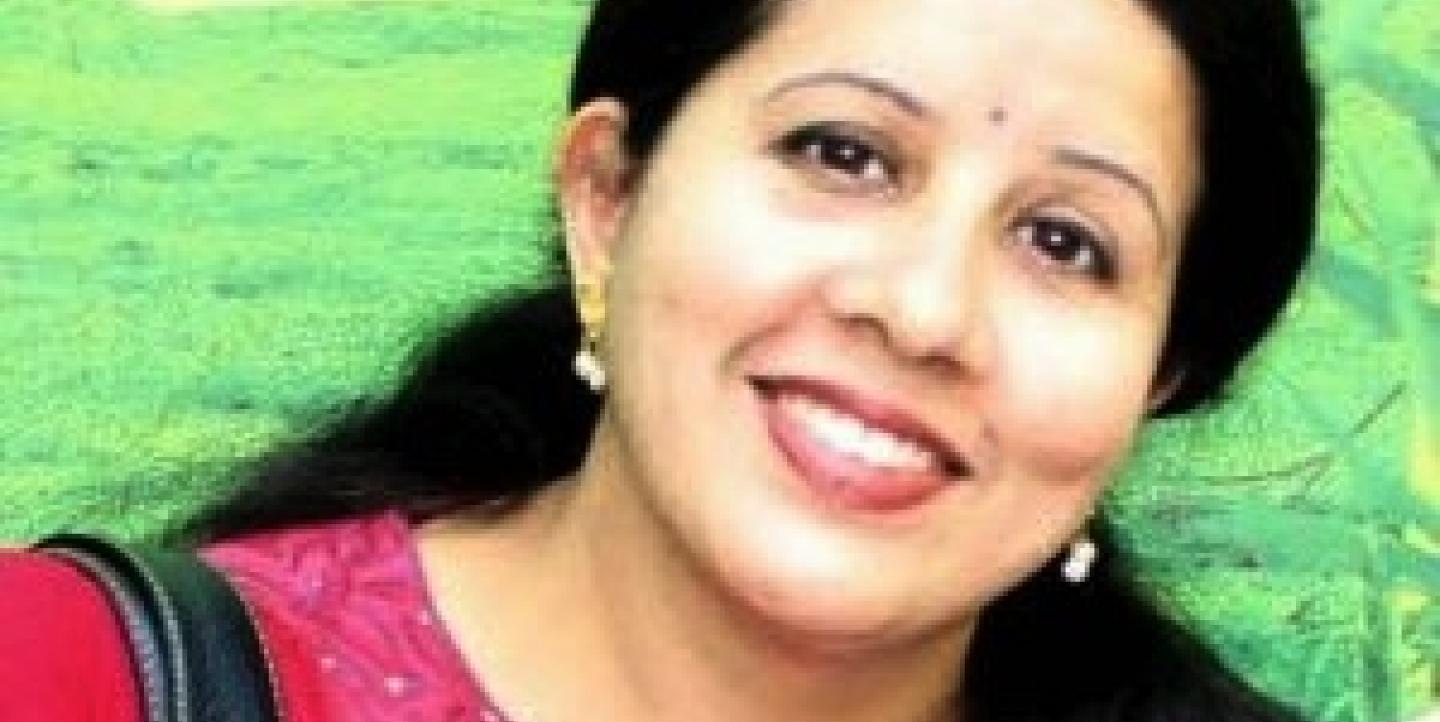Each month, IJNet features an international journalist who exemplifies the profession and has used the site to further his or her career. If you would like to be featured, email a short bio and a paragraph about how you have used IJNet by September 20 here.
This month's journalist, Papiya Bhattacharya of India, covers science, technology and culture nationwide. Through IJNet, she learned of a climate change conference for journalists in Nepal and earned a fellowship to attend. With 14 years of journalism experience, Bhattacharya says IJNet has helped her work gain international exposure.
IJNet: Where are you from?
Papiya Bhattacharya: I have lived in Bangalore, Karnataka, India for the last 14 years. I was born and raised in Nagpur, Maharashtra, India.
IJNet: How did you get started in journalism?
PB: I remember enjoying writing assignments in school and I loved writing letters to the local newspaper, the Nagpur Times, and for our school magazine. I came to Bangalore with a research fellowship from the Indian Council of Agricultural Research and worked on my research for a year. During this time, I applied for a job as a journalist with the Deccan Herald, cleared the interview and joined them. I spent five happy years working for the editorial, science and web desks.
IJNet: How has IJNet helped you?
PB: IJNet has always given me news of workshops happening all around the world. One of these was a South Asian Journalists Meet on Climate Change in Kathmandu, Nepal, held May 2011 organized by the UN Environment Program, Asia Pacific Environment Center, International Center for Integrated Mountain Development and others.
I heard about it through the IJNet newsletter and received a fellowship to attend. The fellowship took care of my plane tickets, food and lodging in Nepal and helped me gain valuable knowledge on climate change. The organizers are now planning a follow-up in Bangkok, Thailand, for journalists who covered the event...
IJNet: How do you get your ideas for stories?
PB: Sometimes ideas lurk around people with whom we work or surround ourselves. For example, my story on garment workers in the area around Bangalore was born when a lady who works as domestic help in my house told me her daughter wants to join a garment factory instead of becoming a maid. That got me thinking, because the factories were said to be sweat shops that exploit people. I spoke to these people, factory owners and big businessmen and a comparative study between maids and garment workers emerged!
IJNet: What is your proudest work/story so far?
PB: An article that emerged out of the workshop in Kathmandu was published as the main editorial article in the Deccan Herald on June 8, 2011. I began my journalism career with Deccan and the fact that nine years later this freelance article was chosen for the main edit made me feel good. I could pool all issues with climate change and make it relevant to the whole of South Asia; this made the article readable.
IJNet: What advice would you give aspiring journalists?
PB: I will share a tip. Do go deep - by reading and through meeting people - into every story that you write. Skimming just the surface shows only the froth, the real issue emerges only when one has a deep understanding of all the sides. Then one will see that it is very difficult to call a situation, good or bad. This well rounded view is what must emerge. Let readers decide always what is good or bad. Let us never be activists.
You can email Papiya Bhattacharya at papiyaisATgmail.com.


